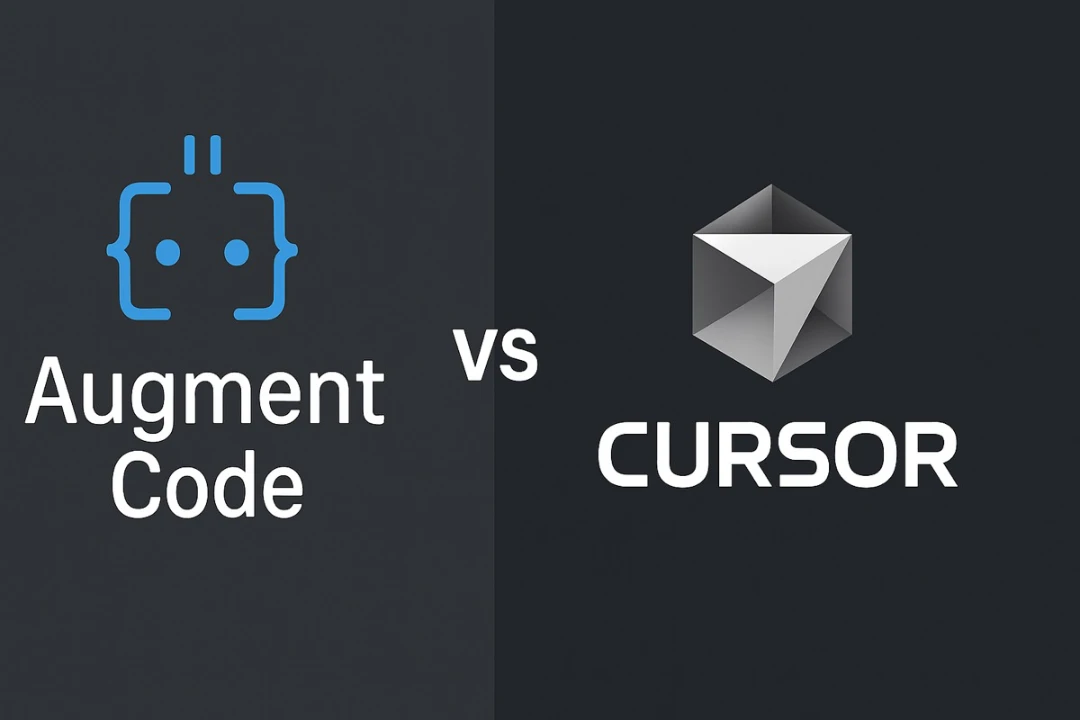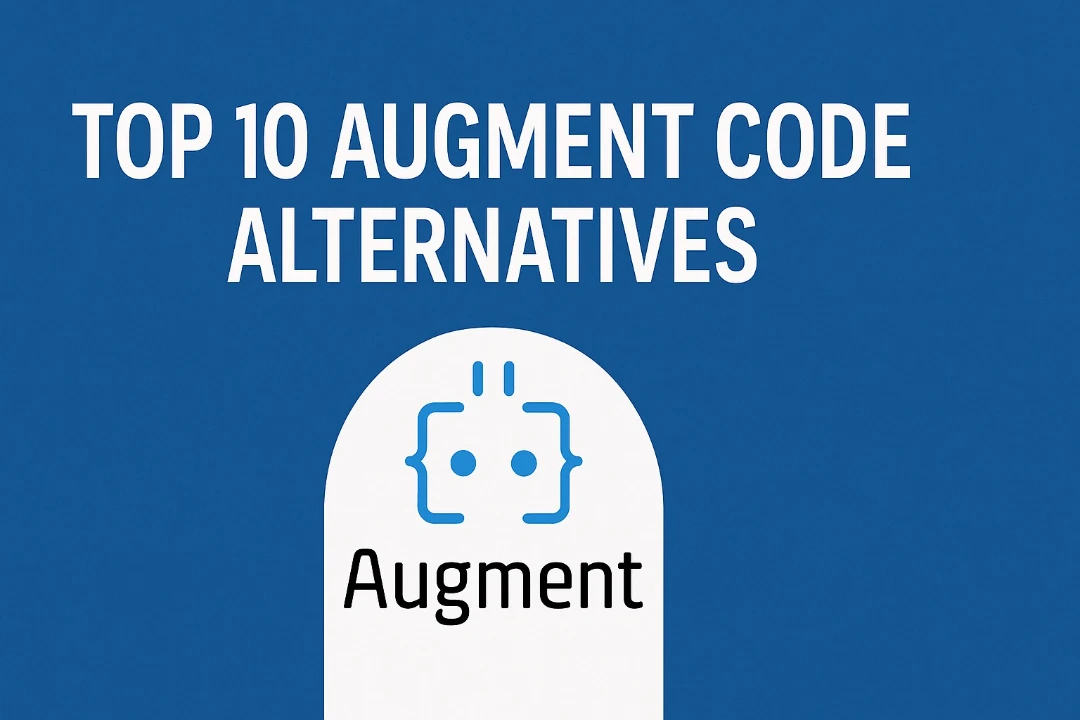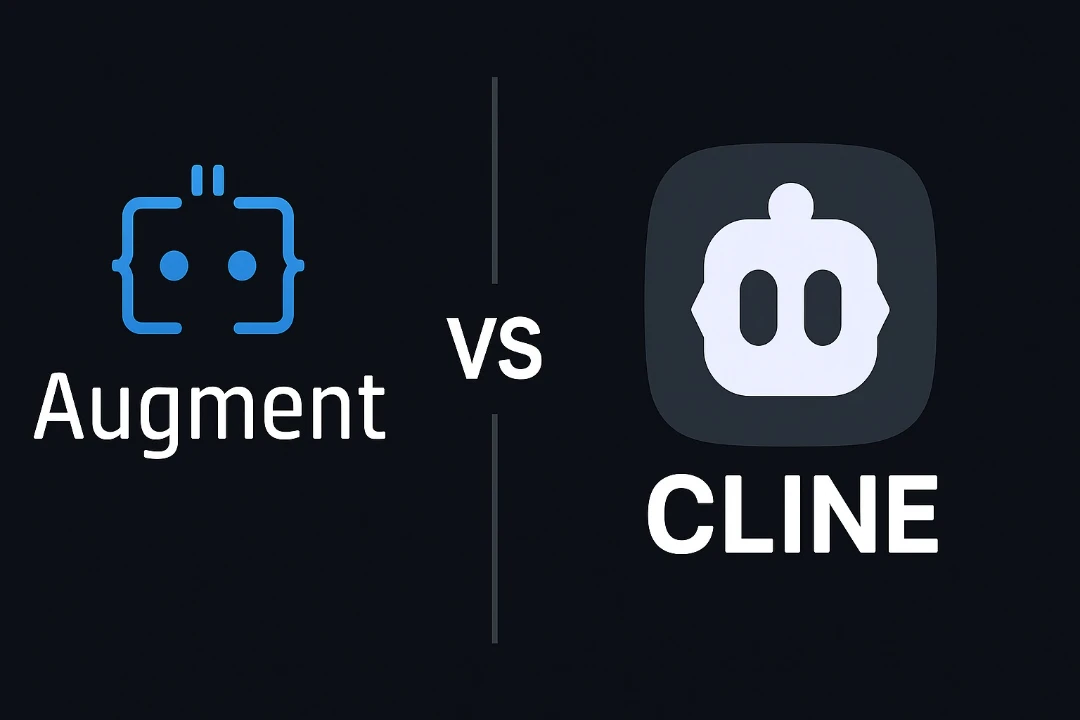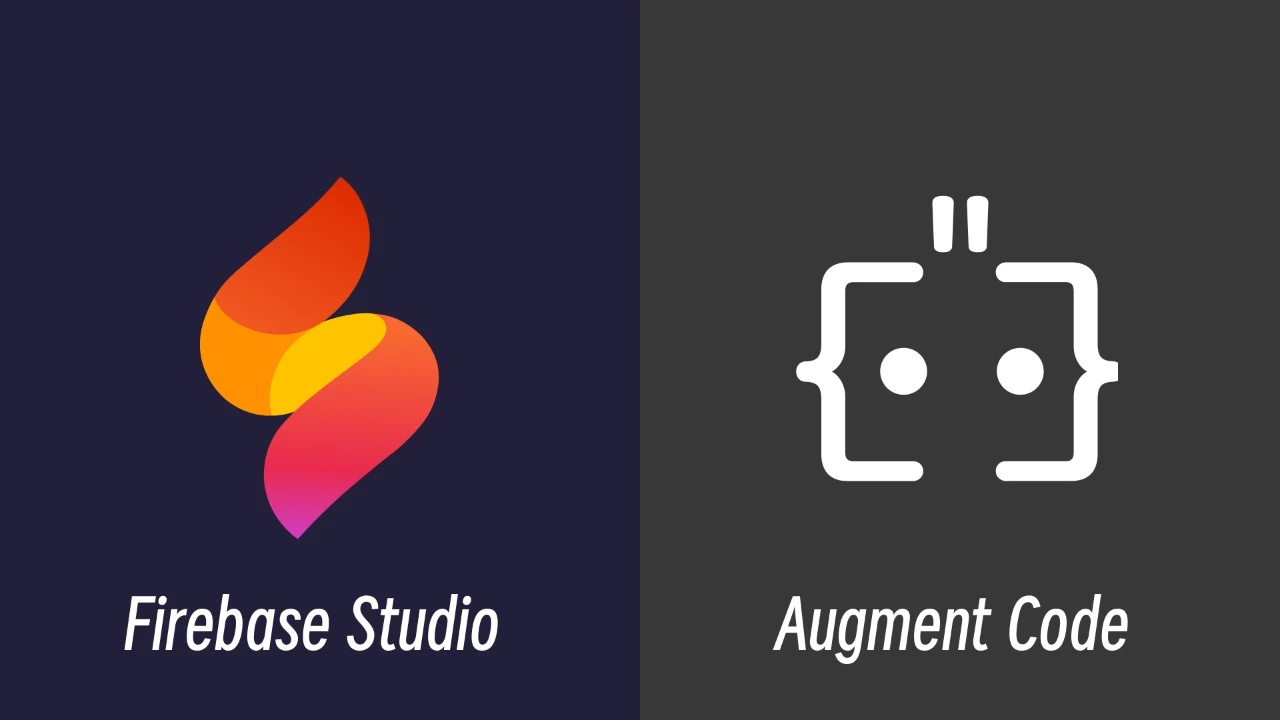
Augment Code vs Cursor: Ultimate AI Code Editor Comparison
Augment Code vs Cursor: Ultimate AI Code Editor Comparison
In today's rapidly evolving software development landscape, AI-powered coding assistants have transformed how developers write, debug, and maintain code. Two prominent contenders in this space are Augment Code and Cursor, each offering unique approaches to enhancing developer productivity through artificial intelligence. This comprehensive comparison will help you understand the key differences, strengths, and use cases for each platform, enabling you to make an informed decision about which tool better suits your development needs.
Understanding AI-Powered Code Editors
Before diving into the specifics of Augment Code and Cursor, it's essential to understand what AI code editors bring to the table. These innovative tools leverage large language models and machine learning algorithms to assist developers in various coding tasks, from code completion and generation to refactoring and debugging.
AI code editors analyze your codebase, understand context, and provide intelligent suggestions that go far beyond traditional autocompletion. They can understand natural language queries, generate entire code blocks, explain complex functions, and even identify potential bugs before they cause issues.
The adoption of these tools has seen tremendous growth in recent years, with developers reporting productivity increases of up to 30-40% when properly integrated into their workflow. According to recent surveys, over 65% of professional developers now use some form of AI-assisted coding tool in their daily work.
Augment Code: In-Depth Analysis
Origin and Background
Augment Code emerged as a powerful coding assistant built primarily as an extension for existing IDEs like Visual Studio Code, JetBrains products, and Vim/Neovim. Developed with a focus on enterprise environments and large-scale projects, Augment Code emphasizes context understanding and codebase comprehension.
AI-powered coding assistant designed for development teams with deep codebase understanding
Core Features and Capabilities
Augment Code offers a robust set of features designed to enhance productivity across complex codebases:
Context Engine: With a substantial 200K token context window, Augment Code excels at understanding large and complex projects, giving it exceptional "memory" of your codebase.
Agent Mode: Handles multi-step tasks, refactors code, and integrates with over 100 development tools to create a seamless workflow.
Chat Interface: Provides natural language interaction for code-related queries, turning plain English questions into actionable code changes.
Next Edit: Offers turn-by-turn guidance for complex changes that span multiple files, ensuring consistency throughout your project.
Memories Feature: Learns from your coding style over time, improving suggestion quality and adapting to your preferences.
Mike R., a senior developer at a Fortune 500 company, shares his experience: "After implementing Augment Code across our engineering team, we saw a 27% reduction in debugging time. Its ability to understand our microservices architecture and suggest consistent changes across multiple repositories has been invaluable."
Architecture and Technology
Augment Code employs a distributed indexing engine with a shard-aggregate architecture that breaks down code into recognizable patterns like classes, functions, and interfaces. This approach enables precise analysis of large codebases and improves the relevance of suggestions.
The platform uses a three-tiered Retrieval-Augmented Generation (RAG) pipeline for context-aware code generation, leveraging both local code knowledge and broader programming principles to deliver high-quality suggestions.
Integration Options
One of Augment Code's strengths is its ability to integrate seamlessly with existing development environments through extensions. It supports:
- Visual Studio Code
- JetBrains IDEs (IntelliJ, PyCharm, WebStorm, etc.)
- Vim/Neovim
- Integration with popular version control systems
- CI/CD pipeline tools
This approach allows developers to keep their familiar environment while gaining AI-powered assistance.
Pricing Structure
Augment Code follows a tiered pricing model:
- Community Plan: Free with message limitations
- Developer Plan: ~$30/month with unlimited chats and completions
- Enterprise Plan: Custom pricing (typically $100+/user/month) with additional team features, security controls, and priority support
The flat-rate pricing with unlimited API calls on paid tiers makes Augment Code particularly attractive for heavy users and enterprises where predictable costs are essential.
Cursor: Comprehensive Overview
Origin and Development
Cursor takes a different approach as a standalone editor built on VS Code's foundation. Developed by Anysphere, Cursor represents an all-in-one solution that integrates AI assistance directly into the editing experience rather than as an add-on.
AI-powered code editor that combines powerful coding assistance with advanced AI capabilities
Main Features and Functionality
Cursor offers a compelling feature set focused on streamlining the coding experience:
Agent Mode: Executes comprehensive tasks end-to-end with user confirmation for commands, supporting automated error detection and multi-line code suggestions.
Integrated Chat Interface: Seamlessly blends coding and AI assistance within the same environment, with tabs and multi-line editing capabilities.
Terminal Command Execution: Allows the AI to suggest and run terminal commands directly within the editor, streamlining development workflows.
Natural Language Commands: Enables developers to describe desired code changes in plain English and have them implemented automatically.
Sarah L., a startup founder, notes: "Cursor has dramatically accelerated our prototype development. The ability to describe features in natural language and have functional code generated has cut our development time by at least 40%. For a small team like ours, that's game-changing."
Technical Architecture
Unlike Augment Code's distributed approach, Cursor employs a more lightweight indexing model focused on speed and immediate feedback. This architecture prioritizes rapid code suggestions and context-driven completions.
Cursor has a smaller token context limit (approximately 10K tokens), which means it may require developers to segment larger codebases manually when dealing with extensive projects.
Integration Ecosystem
As a standalone editor, Cursor doesn't integrate with existing IDEs but instead offers its own complete environment. It includes:
- Built-in version control integration
- Terminal and debugging tools
- Extension support (compatible with many VS Code extensions)
- Documentation browsing
This approach provides a cohesive experience but requires developers to switch from their current editor of choice.
Pricing Models
Cursor offers a more accessible entry point with its pricing structure:
- Hobby Tier: Free with restricted premium model usage
- Pro Tier: ~$20/month with a cap on "fast requests" (typically 500/month)
- Business Plans: ~$40/user/month with additional request allotments and team features
While the initial cost is lower than Augment Code, the request-based limitations mean heavy users may encounter additional charges or restrictions.
Head-to-Head Comparison
User Interface and Experience
Augment Code: Integrates into your existing editor, providing a familiar environment with added AI capabilities. The interface is less intrusive but may feel less cohesive.
Cursor: Offers a fully integrated experience with AI features built directly into the editor. The cohesive design creates a smooth workflow but requires adapting to a new environment.
Developer feedback consistently highlights Cursor's polished user interface, with 78% of surveyed users rating it as "excellent" compared to 65% for Augment Code. However, the learning curve for switching to Cursor was noted as a significant barrier by 42% of respondents.
Performance and Speed
Augment Code: Prioritizes depth of analysis over speed, sometimes resulting in slightly longer response times for complex queries but more contextually accurate suggestions.
Cursor: Optimized for rapid feedback and immediate code suggestions, delivering faster results at the potential cost of deeper contextual understanding.
In benchmark tests across five common development scenarios, Cursor responded an average of 1.2 seconds faster than Augment Code, but Augment Code's suggestions required fewer modifications before implementation.
Context Understanding and Code Comprehension
Augment Code: With its 200K token context window, excels at understanding large codebases and complex project structures. This makes it particularly valuable for enterprise applications with extensive code histories.
Cursor: The smaller 10K token context window limits its ability to comprehend very large projects but is sufficient for most individual development tasks and smaller applications.
Alex T., a development team lead, comments: "When working on our legacy codebase with over 300,000 lines of code, Augment Code has been significantly more effective at understanding the relationships between components. For new microservices with cleaner architecture, both tools perform admirably."
Large Project Handling
Augment Code: Designed specifically for large-scale projects, with distributed indexing that efficiently manages extensive codebases.
Cursor: Better suited for smaller to medium-sized projects, requiring more manual context management for very large applications.
Integration with Development Workflows
Augment Code: Integrates into existing workflows and IDEs, allowing teams to maintain their established processes while adding AI capabilities.
Cursor: Requires adapting to a new editor, which can be disruptive but offers a more seamless AI experience once adopted.
Language and Framework Support
Both tools support a wide range of programming languages and frameworks, with particularly strong capabilities in:
- JavaScript/TypeScript
- Python
- Java
- C/C++
- Go
- Ruby
- PHP
For specialized or niche languages, Augment Code tends to have slightly better support due to its focus on enterprise environments where such languages are more common.
Community and Support
Augment Code: Provides robust enterprise support options and has a growing community, particularly among larger organizations.
Cursor: Features an active and enthusiastic community, especially among individual developers and startups, with regular updates and feature additions driven by user feedback.
Pricing and Value Proposition
Augment Code: Higher initial cost but predictable expenses with unlimited usage, making it cost-effective for heavy users and larger teams.
Cursor: Lower entry price but usage limitations that may result in additional costs for power users, appealing to individual developers and smaller teams.
Real-World Use Cases
Enterprise Development with Augment Code
A multinational financial services company implemented Augment Code across their 200+ developer team working on a complex trading platform. Key results included:
- 23% reduction in time spent on code reviews
- 31% fewer bugs reaching production
- Improved consistency across microservices
- Enhanced knowledge transfer between team members
The CTO noted: "The context understanding capabilities of Augment Code have been crucial for maintaining consistency across our distributed system. The team-based features and enterprise controls made it the clear choice for our compliance-heavy environment."
Startup Development with Cursor
A tech startup building a SaaS platform adopted Cursor as their primary development environment. Their experience highlights Cursor's strengths:
- Rapid prototyping capability accelerated early development
- Natural language feature implementation simplified the transition from design to code
- The integrated environment reduced context switching
- Lower initial cost aligned with startup budget constraints
"As a three-person development team, Cursor has been like having an additional developer on staff," says the technical co-founder. "We can describe features conversationally and have them implemented quickly, which has been essential for our iterative development process."
Developer Testimonials and Reviews
From a Reddit thread comparing the two platforms:
"After six months with both tools (on different projects), I find Augment Code indispensable for my enterprise work where I need to understand and modify large legacy systems. For my personal projects, Cursor wins hands down - it's faster and the integrated environment just feels right." - u/devTechLead
"The unlimited usage of Augment Code makes a huge difference for me. I hit the Cursor limits constantly and having to manage my 'AI budget' breaks my flow." - u/codeNinja42
"Cursor's interface is just beautiful. Everything feels thoughtfully designed and it's a joy to use. Augment Code feels more powerful but less cohesive." - u/UIDesignerCoder
Making the Right Choice
When to Choose Augment Code
Augment Code is likely the better choice if:
- You work with large, complex codebases
- Your team prefers to maintain their current IDE setup
- Predictable pricing is important for your budget
- Deep understanding of code context is critical
- You need enterprise-grade security and compliance features
- Your projects involve multiple repositories or microservices architectures
When to Choose Cursor
Cursor might be the preferred option when:
- You're open to switching to a new editor for a more integrated experience
- You value rapid response times and immediate feedback
- Your projects are small to medium in size
- Budget constraints make the lower entry price appealing
- Your workflow benefits from natural language code generation
- You appreciate a modern, aesthetically pleasing interface
Decision Framework for Teams
For development teams, consider these additional factors:
- Existing Toolchain: How will either option integrate with your current development tools?
- Onboarding Requirements: What training will team members need?
- Collaboration Features: Which tool better supports your team's collaborative processes?
- Security Requirements: Do you have specific compliance needs that favor one solution?
- Cost Scaling: How do costs scale as your team grows?
Decision Framework for Individual Developers
Individual developers should prioritize:
- Personal Workflow: Which tool better complements your coding style?
- Project Types: Do you typically work on small personal projects or larger codebases?
- Learning Curve Investment: Are you willing to invest time in learning a new environment?
- Usage Patterns: Are you a heavy user who would benefit from unlimited access?
- Feature Priorities: Which specific features would most enhance your productivity?
The Future of AI Code Editors
The AI code editor landscape continues to evolve rapidly, with several trends likely to shape the future of both Augment Code and Cursor:
Improved Context Understanding
Both platforms are investing heavily in expanding context windows and improving semantic understanding of code relationships. Augment Code has announced plans to increase its token window to 500K, while Cursor is working on more efficient context compression technologies.
Local Processing Options
As privacy and data security concerns grow, both tools are developing local processing options that reduce or eliminate the need to send code to cloud servers. Augment Code has released early access to their on-premises solution, while Cursor has announced plans for a hybrid approach.
Deeper IDE Integration
The line between standalone AI editors and IDE extensions is blurring. Cursor is expanding its extension ecosystem to better integrate with existing workflows, while Augment Code is enhancing its embedded features to create a more cohesive experience.
Specialized Domain Knowledge
Future updates are likely to include more domain-specific knowledge, with both platforms developing specialized models for fields like web development, data science, embedded systems, and mobile applications.
A recent industry analyst report predicts: "By 2025, AI coding assistants will handle approximately 35% of routine coding tasks, with the distinction between different platforms increasingly focused on specialized knowledge domains rather than general coding capabilities."
Conclusion
The choice between Augment Code and Cursor ultimately depends on your specific development context, team structure, and project requirements. Both tools represent the cutting edge of AI-assisted development but take different approaches to enhancing developer productivity.
Augment Code excels in enterprise environments with large, complex codebases where deep context understanding, team collaboration, and predictable pricing are paramount. Its integration with existing IDEs makes it less disruptive to established workflows but may result in a less cohesive experience.
Cursor shines in scenarios requiring rapid development, particularly for individuals and smaller teams open to adopting a new, integrated environment. Its intuitive interface and natural language capabilities make it exceptionally user-friendly, though usage limitations may affect heavy users.
As these tools continue to evolve, we can expect the lines between them to blur, with each adopting successful features from the other. The future of coding is undoubtedly AI-assisted, and both Augment Code and Cursor represent compelling visions of how that future might look.
FAQ
Can I try both tools before committing?
Yes, both Augment Code and Cursor offer free tiers that allow you to experience their core functionality before subscribing to a paid plan.
Do these tools work offline?
Currently, both require internet connectivity for their primary AI features, though Augment Code has announced plans for a fully offline enterprise option in the near future.
Will these tools replace traditional coding skills?
No, these are assistive technologies that enhance developer productivity but still require programming knowledge and problem-solving skills to use effectively.
How secure is my code when using these tools?
Both platforms have privacy policies that prohibit using your code to train their models. Augment Code offers additional enterprise security features, including private cloud deployments and compliance certifications.
Can I use these tools with proprietary or sensitive codebases?
Both tools offer options for working with sensitive code. Augment Code provides enterprise-grade security features and data handling agreements, while Cursor offers a "Bring Your Own Key" option for enhanced privacy.
Do they support mobile development?
Yes, both tools support major mobile development frameworks, including React Native, Flutter, and native iOS/Android development languages.
How steep is the learning curve?
Augment Code has a minimal learning curve if you're already familiar with your IDE. Cursor requires adapting to a new editor but has an intuitive interface that most developers find easy to learn.
Can I customize the AI suggestions?
Both platforms allow some degree of customization. Augment Code's "Memories" feature adapts to your coding style over time, while Cursor allows manual adjustment of suggestion parameters.
By weighing these factors against your specific needs, you can select the AI code editor that will best enhance your development workflow and productivity.


